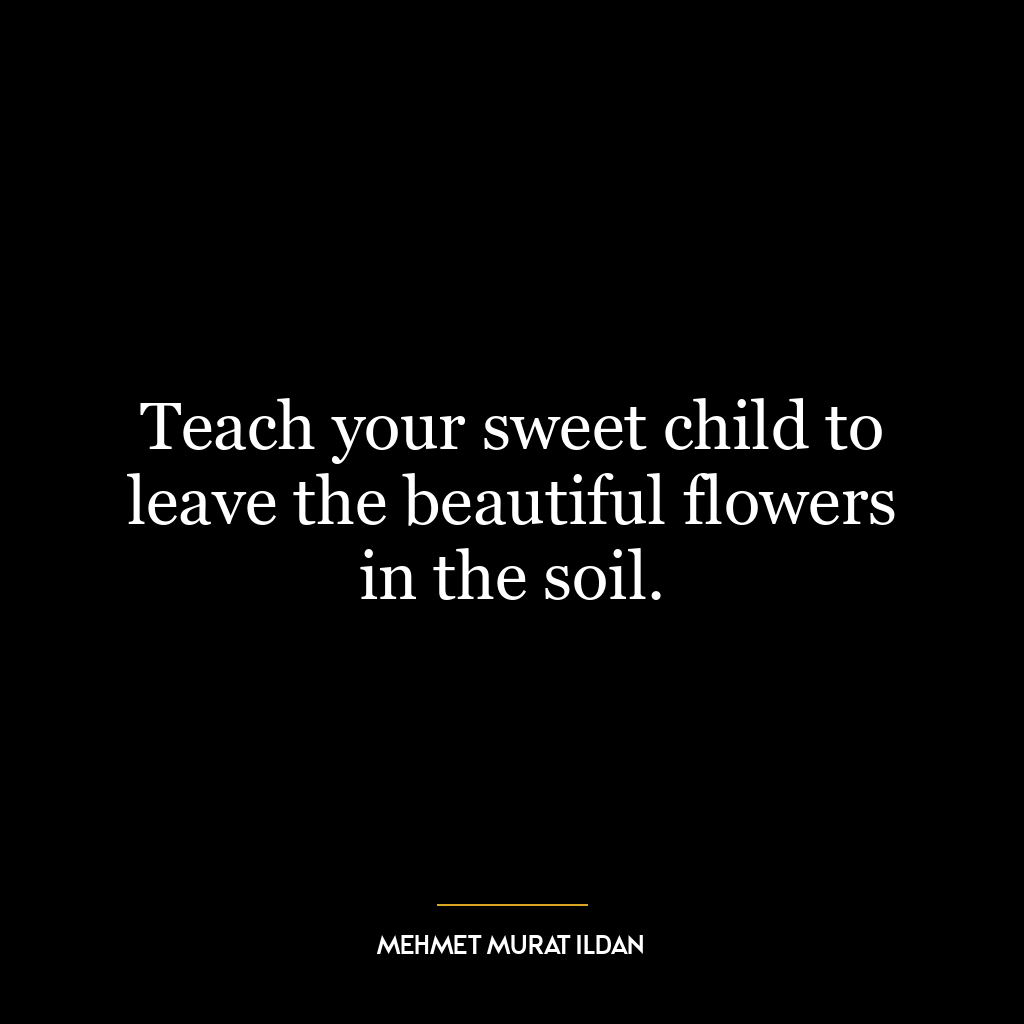Teach your sweet child to leave the beautiful flowers in the soil.
“Teach your sweet child to leave the beautiful flowers in the soil” is a metaphorical statement that encourages respect for nature and appreciation for things without possessing or destroying them. The “sweet child” represents anyone who is learning or developing, while the “beautiful flowers” symbolize anything that’s attractive or desirable in life. The “soil”, on the other hand, stands for their natural environment where they thrive and bloom.
The quote suggests that we should teach others (particularly those under our influence or care) to appreciate and enjoy beauty, success, or any other form of attraction without necessarily taking possession of it. It advocates for an approach where one can admire something beautiful without picking it from its roots – an act which would ultimately lead to its death.
Applying this idea in today’s world could mean several things across various contexts. In environmental conservation efforts, it could mean teaching younger generations about respecting nature – admiring its beauty without causing harm. For instance, enjoying wildlife in their natural habitats instead of capturing them as pets or appreciating forests while resisting deforestation.
In personal development context, this quote could be interpreted as learning to appreciate others’ talents and successes without envy. Instead of trying to ‘pluck’ their achievements (by copying them or wishing they were ours), we should let them stay ‘in the soil’ – acknowledging these accomplishments as theirs alone but still appreciating how they contribute to a richer world experience for us all.
In essence, this quote promotes a mindset shift from possessiveness towards appreciation – encouraging us not just to respect boundaries but also cultivate gratitude even when we don’t own what we admire. This way we can enjoy life more fully by appreciating all its diverse aspects rather than focusing solely on acquisition.















